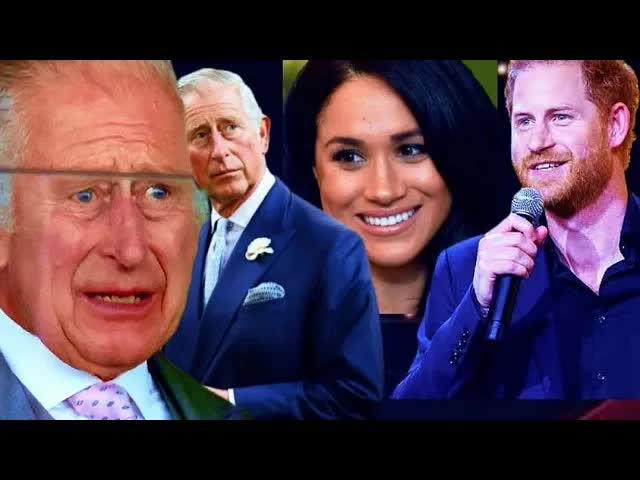At the recent Dealbook Summit in New York City, Prince Harry took center stage to deliver a powerful message about the need for media accountability.
His remarks resonated deeply, transforming what could have been a standard celebrity appearance into a significant call for change within the journalism landscape.
With the Summit known for its influential speakers and thought-provoking discussions, Harry seized the opportunity to express his concerns regarding the current state of media and its profound implications for society.
Harry’s approach was both incisive and heartfelt as he tackled the toxic environment surrounding contemporary journalism.
He shed light on how invasive reporting not only distorts personal narratives but also inflicts serious damage on mental health.
It was clear that he wasn’t just speaking from a theoretical standpoint; his insights were rooted in his own painful experiences with the press.
The relentless quest for sensational stories often comes at the expense of truth, leaving individuals like Harry to grapple with the fallout.
During his talk, Harry articulated the unique challenges faced by public figures under the unyielding gaze of the media.
He highlighted how algorithm-driven platforms amplify these issues, prioritizing engagement over accuracy and leading to a distorted public understanding of reality.
This manipulation creates dangerous echo chambers that perpetuate misinformation, further complicating the relationship between public figures and the media that covers them.
The prince didn’t shy away from discussing his personal encounters with media misrepresentation.
By sharing specific instances where he felt unfairly portrayed, he turned the conversation into a broader exploration of accountability within journalism.
His message was clear: both the media and the public must take responsibility for the narratives they consume and propagate.
A shift towards more compassionate and truthful reporting is essential for fostering a well-informed society.
As the audience absorbed Harry’s eloquence and sincerity, it became evident that his journey has evolved significantly since relocating to the United States.
This move signifies more than just a change of scenery; it represents a profound transformation in his identity.
Embracing life outside the confines of royal expectations has allowed him to redefine his roles as a husband, father, and individual.
In California, Harry has discovered a newfound sense of freedom.
The simplicity of everyday moments—playing with his children or enjoying quiet evenings with Meghan—has brought him a joy that was previously elusive.
This liberation aligns with what his late mother, Princess Diana, might have envisioned for him: a life grounded in personal choice rather than institutional obligation.
His participation in the Dealbook Summit exemplifies this new chapter, allowing him to candidly address pressing issues like mental health and the impact of media scrutiny without the constraints of royal protocol.
Harry’s openness about his struggles resonates with many, making him a relatable figure advocating for meaningful change.
However, Harry’s journey hasn’t been without its challenges.
The mental health struggles he faced were often exacerbated by the invasive nature of media coverage.
Living under constant scrutiny meant that every action was subject to distortion, creating a psychological burden that weighed heavily on him.
The tragic loss of his mother served as a stark reminder of the dangers of media intrusion, leaving deep scars that shaped his perception of public life.
Throughout his life, Harry has navigated an environment where the validity of information is perpetually questioned.
This ongoing assault on his personal narrative has made it difficult for him to maintain a sense of normalcy.
The dissonance between how the media portrays him and his own understanding of self has been both confusing and damaging.
As he continues to advocate for mental health awareness, Harry emphasizes the importance of reclaiming one’s narrative.
His journey to healing has involved confronting past traumas and seeking professional help.
By sharing his story, he hopes to illuminate the broader issues surrounding mental health and the responsibility of the media in shaping public discourse.
In today’s digital age, media platforms hold significant power and must prioritize ethical reporting that respects human dignity.
The call for accountability isn’t just a passive plea; it’s a demand for action from those who influence public perception.
As Prince Harry has underscored, the narratives we consume play a crucial role in shaping our understanding of the world around us.
With Harry’s unwavering commitment to advocating for change, it’s clear that he will not back down.
His journey reflects a determination to redefine the relationship between public figures and the media, paving the way for a more compassionate and truthful approach to storytelling.
As he forges ahead, he continues to inspire others to embrace authenticity and strive for a healthier media environment.
